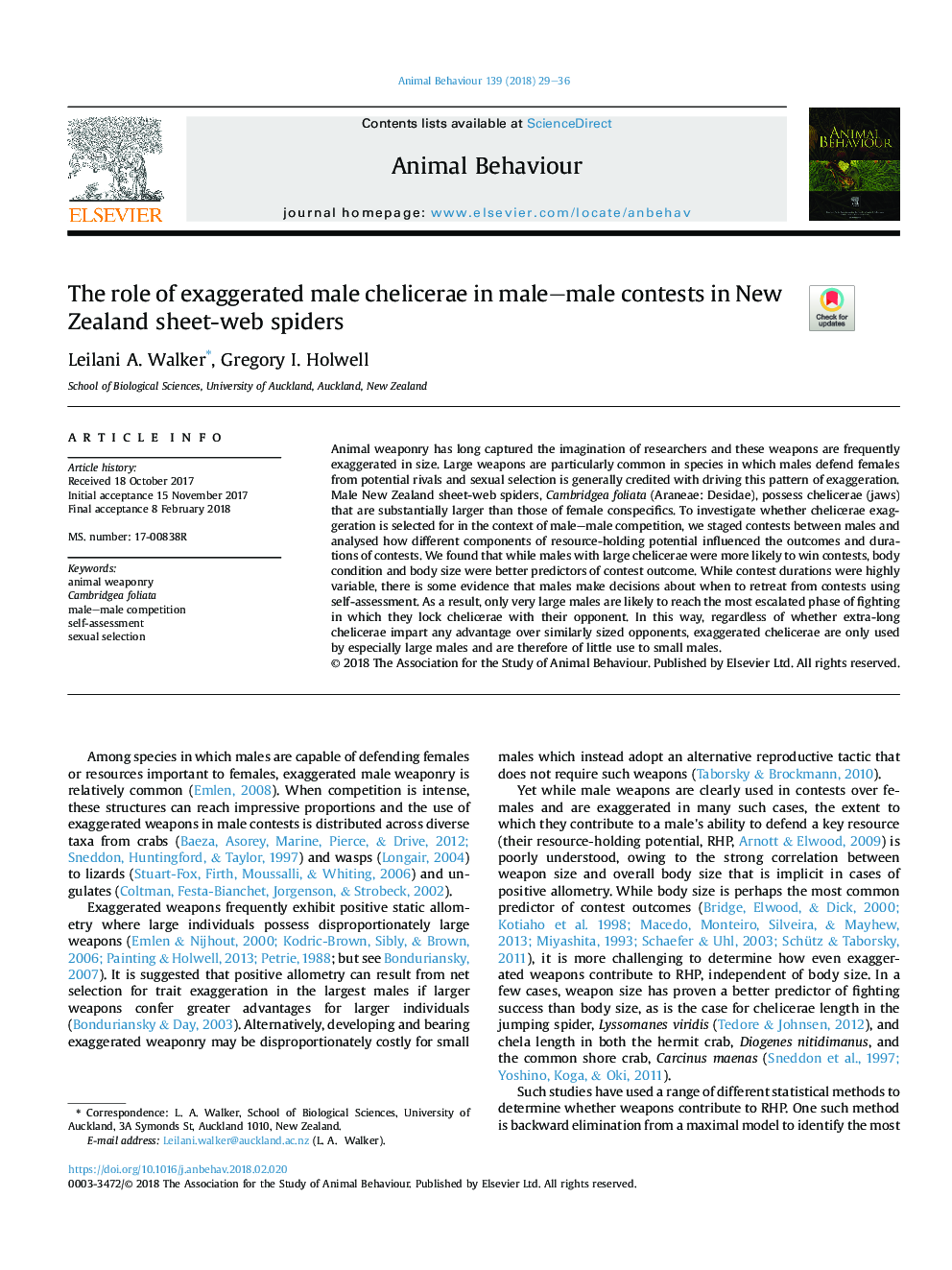| Article ID | Journal | Published Year | Pages | File Type |
|---|---|---|---|---|
| 8488552 | Animal Behaviour | 2018 | 8 Pages |
Abstract
Animal weaponry has long captured the imagination of researchers and these weapons are frequently exaggerated in size. Large weapons are particularly common in species in which males defend females from potential rivals and sexual selection is generally credited with driving this pattern of exaggeration. Male New Zealand sheet-web spiders, Cambridgea foliata (Araneae: Desidae), possess chelicerae (jaws) that are substantially larger than those of female conspecifics. To investigate whether chelicerae exaggeration is selected for in the context of male-male competition, we staged contests between males and analysed how different components of resource-holding potential influenced the outcomes and durations of contests. We found that while males with large chelicerae were more likely to win contests, body condition and body size were better predictors of contest outcome. While contest durations were highly variable, there is some evidence that males make decisions about when to retreat from contests using self-assessment. As a result, only very large males are likely to reach the most escalated phase of fighting in which they lock chelicerae with their opponent. In this way, regardless of whether extra-long chelicerae impart any advantage over similarly sized opponents, exaggerated chelicerae are only used by especially large males and are therefore of little use to small males.
Related Topics
Life Sciences
Agricultural and Biological Sciences
Animal Science and Zoology
Authors
Leilani A. Walker, Gregory I. Holwell,
